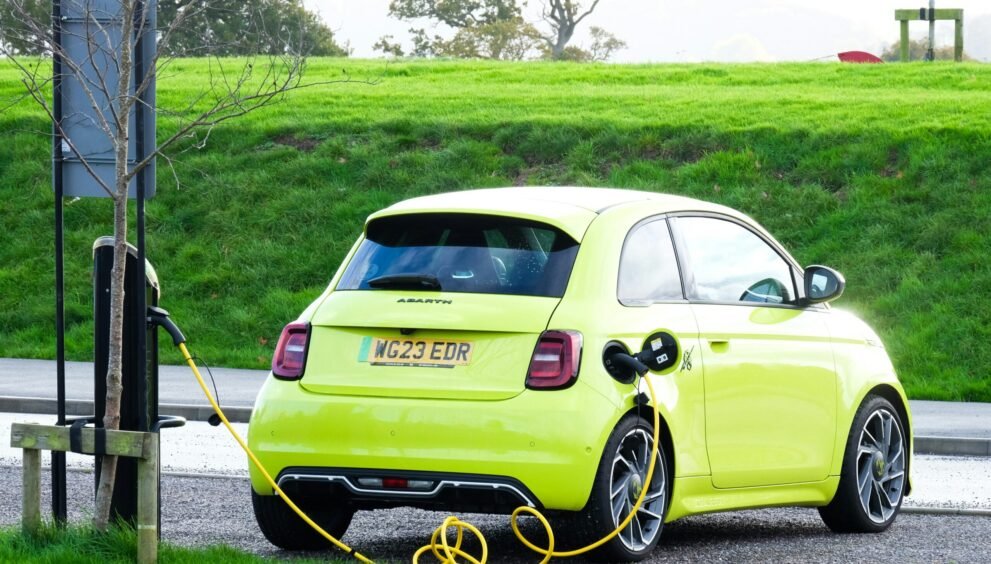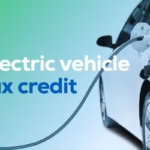2025’s Most Affordable Electric Cars: Budget EVs Compared Now

2025’s Most Affordable Electric Cars: Budget EVs Compared
Electric vehicle ownership no longer requires a luxury car budget. As the EV market matures, manufacturers have introduced compelling, affordable electric cars in 2025 that make zero-emission driving accessible to mainstream buyers. Whether you’re a first-time EV buyer or looking to minimize transportation costs, these best budget EVs prove that going electric doesn’t mean breaking the bank.
Price Rankings: Top Cheap Electric Vehicles Under $30K
1. Nissan Leaf S – Starting at $28,140

The 2024 Nissan Leaf price starts at $28,140 for the base S trim, making it one of the most accessible entry points into electric vehicle ownership. As the world’s first mass-market electric vehicle, the Leaf continues serving budget-conscious buyers with proven reliability and straightforward operation.
The base Leaf S delivers 149 miles of EPA-estimated range, sufficient for most daily commuting needs. While not class-leading, this range covers the average American’s daily driving distance of 40 miles with plenty of reserve capacity.
2. Chevrolet Bolt EV 1LT – Starting at $26,595

The 2023 Bolt 1LT starts out at $26,595, and the 2LT rings up at $29,795, positioning the Bolt as one of the most affordable EVs available. The Bolt offers exceptional value with 259 miles of EPA-estimated range in a compact, efficient package.
General Motors discontinued the Bolt for 2024 but announced its return for the 2026 model year with updated technology and design. Current inventory and certified pre-owned models remain excellent value propositions for budget-conscious buyers.
3. Mini Cooper Electric – Starting at $30,900

Starting at $30,900, it’s an attractive deal for a small, fun EV that delivers premium European engineering at an accessible price point. The Mini Cooper Electric combines distinctive styling with urban-focused efficiency, offering 114 miles of EPA-estimated range.
While range is limited compared to competitors, the Mini excels in city driving scenarios where its compact dimensions and instant torque delivery shine. The premium interior materials and advanced technology features provide luxury car amenities at budget EV pricing.
Range and Features Analysis
Nissan Leaf: Practical Efficiency

The Leaf S provides 149 miles; the pricier SV Plus, 212 miles, offering two distinct range options to match different driving needs and budgets. The standard Leaf S suits urban commuters, while the SV Plus accommodates longer regional trips.
The Nissan Leaf‘s interior controls aren’t as alienating and tech-heavy as many other EVs, while the hatchback shape promotes good passenger and cargo space. This user-friendly approach appeals to buyers transitioning from traditional vehicles who prefer familiar control layouts over cutting-edge interfaces.
The Leaf’s mature platform benefits from years of real-world development, resulting in reliable performance and well-understood maintenance requirements. However, the Leaf uses CHAdeMO fast charging, which is less common than CCS fast charging used by most other EVs.
Chevrolet Bolt: Maximum Value

The Bolt EV delivers exceptional range-per-dollar value with 259 miles of EPA-estimated range in its most affordable configuration. This range exceeds many luxury EVs while maintaining budget-friendly pricing, making it ideal for buyers who need maximum capability without premium costs.
The Chevrolet Bolt leading as a cost-effective choice, especially with its $7,500 tax credit availability further enhances its value proposition. The Bolt’s spacious interior and advanced safety features rival more expensive competitors while maintaining affordable operation costs.
Standard features include a 10.2-inch infotainment display, Apple CarPlay/Android Auto integration, and comprehensive safety suite with automatic emergency braking and lane departure warning.
Mini Cooper Electric: Premium Experience

Despite its compact size, the Mini Cooper Electric delivers premium materials and advanced technology typically found in luxury vehicles. The distinctive design, high-quality interior, and engaging driving dynamics justify its slightly higher price point among budget EVs.
The Mini’s 181-horsepower electric motor provides spirited acceleration and responsive handling that makes urban driving enjoyable rather than merely efficient. Premium features include ambient lighting, wireless smartphone charging, and a sophisticated infotainment system.
Government Incentives and Total Savings
Federal Tax Credits
Nissan comes with an ace up its sleeve: It still qualifies for the $7,500 federal tax rebate for electrified vehicles, significantly reducing the effective purchase price for qualifying buyers. This incentive can lower the Leaf’s cost to approximately $20,640 for the base model.
The federal EV tax credit applies to vehicles meeting domestic content and final assembly requirements. Eligibility varies by manufacturer and model, with income limits affecting qualification for the full credit amount.
State and Local Incentives
Many states offer additional rebates, tax credits, or other incentives for EV purchases. California provides up to $2,000 in additional rebates, while other states offer reduced registration fees, HOV lane access, or utility rebates for home charging installation.
Local utilities often provide time-of-use electricity rates that can reduce charging costs to the equivalent of $1-2 per gallon gasoline. These ongoing operational savings compound over time, making budget EVs even more economical.
Total Cost of Ownership
Budget EVs typically save $1,000-2,000 annually in fuel and maintenance costs compared to comparable gasoline vehicles. Electric motors require minimal maintenance, eliminating oil changes, spark plug replacements, and most other routine service requirements.
Insurance costs for budget EVs often match or slightly exceed comparable gasoline vehicles, but improved safety ratings and lower theft rates can offset premium increases.
Pros and Cons of Budget EV Ownership

Advantages of Going Affordable
Lower Environmental Impact: Even budget EVs produce zero direct emissions and significantly reduce overall carbon footprint compared to gasoline vehicles, especially when charged with renewable electricity.
Simplified Ownership: Electric drivetrains require minimal maintenance, reducing ongoing costs and service appointments. No oil changes, tune-ups, or emissions testing creates hassle-free ownership experience.
Instant Torque: Electric motors deliver maximum torque from zero RPM, providing responsive acceleration that makes budget EVs feel more powerful than their horsepower ratings suggest.
Quiet Operation: Electric drivetrains operate virtually silently, creating peaceful cabin environments and reducing noise pollution in urban areas.
Potential Disadvantages
Limited Range: Budget EVs typically offer 150-260 miles of range, requiring more frequent charging stops during long trips compared to premium EVs or gasoline vehicles.
Charging Infrastructure: While improving rapidly, public charging networks may be less convenient than gasoline stations, particularly in rural areas or older urban centers.
Cold Weather Performance: Battery efficiency decreases in cold temperatures, reducing range by 20-40% in winter conditions. This affects budget EVs more significantly due to their already limited range.
Resale Value Uncertainty: The rapidly evolving EV market creates uncertainty about long-term resale values, though federal tax credits help offset initial depreciation.
Making the Right Choice
Best for Urban Commuters: Nissan Leaf
The Leaf excels for buyers with predictable urban commuting patterns who charge primarily at home. Its user-friendly interface, proven reliability, and practical hatchback design make it ideal for first-time EV buyers seeking straightforward electric transportation.
Best Overall Value: Chevrolet Bolt (When Available)
The Bolt’s combination of long range, advanced features, and competitive pricing made it the best value in budget EVs before discontinuation. Pre-owned Bolts represent exceptional value for buyers comfortable with slightly used vehicles.
Best for Premium Experience: Mini Cooper Electric
Despite limited range, the Mini Cooper Electric provides the most engaging driving experience and highest-quality interior among budget EVs. It’s perfect for urban dwellers who prioritize style and driving enjoyment over maximum range.

The Future of Affordable EVs
The budget EV segment continues expanding as manufacturers recognize demand for accessible electric vehicles. A stylish new Leaf EV, now confirmed for the U.S. promises updated technology and design for the next generation of affordable electric transportation.
Upcoming models from Volkswagen, Hyundai, and other manufacturers will further expand cheap electric vehicle options, driving continued price competition and feature improvements. Battery costs continue declining, enabling manufacturers to offer more range and features at budget price points.
For buyers considering their first electric vehicle, 2024’s affordable options prove that sustainable transportation doesn’t require premium pricing. Whether prioritizing maximum range, proven reliability, or engaging driving dynamics, today’s budget EVs offer compelling alternatives to traditional gasoline vehicles while delivering the benefits of electric mobility.






















































































































































































































































































































